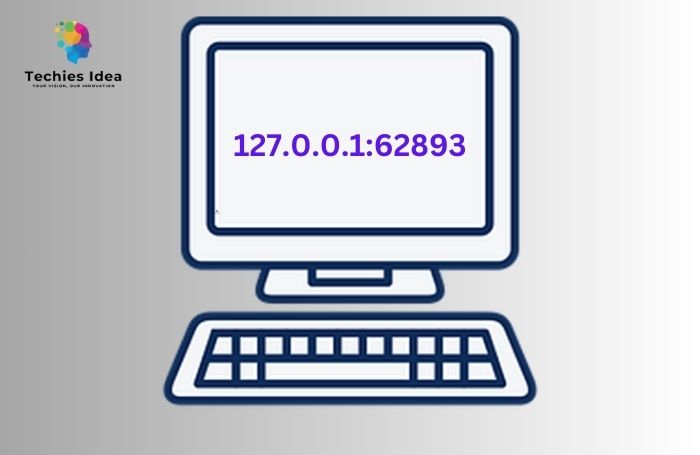
Understanding 127.0.0.1:62893: A Comprehensive Guide to Localhost and Port Usage!
In the realm of computer networking and software development, the IP address “127.0.0.1” holds a special significance. Known as the localhost or loopback address, it allows a device to communicate with itself, enabling testing and development of various applications without external network interference.
What is 127.0.0.1:62893?
“127.0.0.1:62893” specifically refers to the IP address 127.0.0.1 coupled with port 62893. Ports are virtual endpoints used to manage network communications, and each port number serves a unique purpose. Port 62893, for instance, might be used by a specific application or service running on the localhost for local testing or debugging purposes.
How Does “127.0.0.1:62893” Work? Understanding Localhost and Port Usage
“127.0.0.1:62893” refers to a specific IP address and port combination used for local communications on a computer network. Here’s a detailed explanation of how it operates:
Localhost and IP Address 127.0.0.1
- Localhost: In networking, “localhost” refers to the local computer or device itself. It’s commonly represented by the IP address “127.0.0.1”. When a program or application uses “127.0.0.1”, it communicates with itself without involving external networks.
- IP Address 127.0.0.1: This is a reserved IP address that always points back to the local machine. It allows applications running on the same device to interact as if they were communicating over a network, even though the communication remains internal.
Understanding Ports
- Ports: Ports are virtual endpoints within a computer’s operating system used to manage network communications. Each application or service that communicates over a network uses a specific port number. For instance, “62893” in “127.0.0.1:62893” represents a unique port number on the local machine.
How “127.0.0.1:62893” Works in Practice
- Local Testing and Development: Developers often use “127.0.0.1:62893” during software development and testing phases. They can run applications or services locally on their machine and communicate with them using this address.
- Communication between Applications: If an application is configured to listen on port 62893 on localhost, other applications or services on the same machine can connect to it via “127.0.0.1:62893”. This setup allows for isolated testing and debugging without affecting external networks.
- Debugging and Troubleshooting: Developers use localhost addresses and specific ports like 62893 to debug their applications. They can inspect network traffic, test APIs, or simulate interactions without relying on external servers or risking interference with live systems.
Find : EXPLORE CHAPTER 98770247-9019-4FD9-BA22-289AE429217A/1 ON MANGADEX
Security and Usage Considerations
- Security: While localhost addresses like “127.0.0.1” are secure because they do not involve external networks, it’s essential to manage port usage carefully. Unused ports should be closed to prevent potential security vulnerabilities.
- Multiple Applications: Each port number must be unique per application or service on localhost. This prevents conflicts and ensures that applications can communicate effectively without interference.
Practical Applications
Developers often utilize localhost addresses like 127.0.0.1:62893 during software development to:
- Test Applications: Developers can test web applications, APIs, or services locally without deploying them to a live server.
- Debugging: It allows for debugging processes where detailed inspection of network traffic or application behavior is required.
- Isolated Environments: By using localhost, developers can create isolated environments that do not affect external systems or networks.
Security Considerations
While localhost addresses are primarily used for local development and testing, it’s crucial to handle them with care to avoid unintentional exposure to external networks. Ports like 62893 should be used judiciously and closed when not in use to prevent potential security vulnerabilities.
Conclusion
In summary, “127.0.0.1:62893” encapsulates the concept of utilizing local host addresses and ports for local development and testing purposes within computer networks. Understanding how to leverage these tools effectively can significantly enhance the efficiency and reliability of software development processes.
By grasping the significance of localhost and port usage, developers can streamline their workflows and ensure the seamless operation of applications before deploying them to broader network environments.
Frequently Asked Questions (FAQs)
1. Why use “127.0.0.1” instead of “localhost”?
- “127.0.0.1” is the numeric IP address for localhost, offering a direct way to access the local machine. It’s often preferred for precise network configurations and troubleshooting.
2. Can multiple applications use the same port (62893) on localhost?
- No, each port number on localhost must be unique per application or service to avoid conflicts. Developers typically manage port assignments carefully to ensure smooth operation.
3. How do I check if port 62893 is in use on my system?
- On Unix-based systems, use the command
netstat -an | grep 62893to check port usage. On Windows,netstat -ano | findstr :62893serves a similar purpose.
4. What are common alternatives to “127.0.0.1:62893” for local testing?
- Developers often use variations of localhost addresses such as “localhost:62893” or “0.0.0.0:62893,” depending on specific network configurations and requirements.
5. Is It Safe To Expose Port 62893 Publicly?
Exposing port 62893 publicly can pose security risks if not properly secured. Ensure firewall settings are configured to allow only necessary traffic and keep software updated to mitigate vulnerabilities.
I’m Kishan Rana, an IT engineer and avid technology enthusiast. Blogging is my passion and I love to write about technological wonders. Being an SEO professional with around 8 years of experience with good leads I provide SEO services to top-level companies around the globe.

